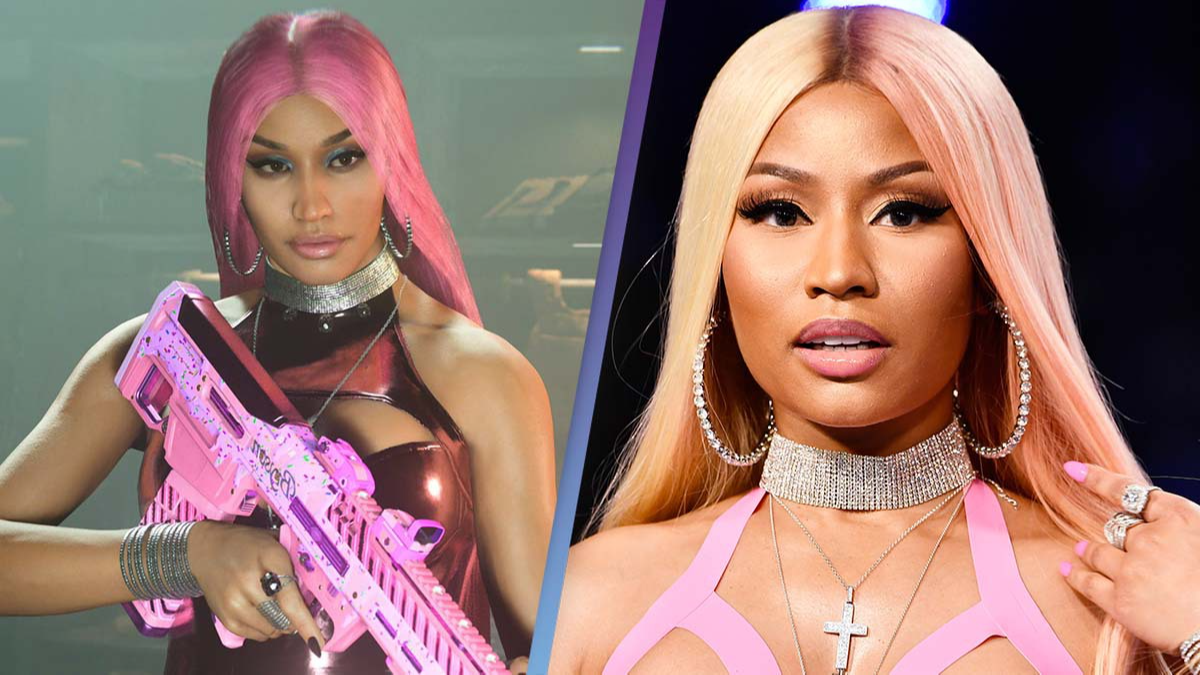Has Nicki Minaj's ever-evolving image captivated your attention, and do the subtle shifts in her appearance spark discussions about beauty standards and cultural identity? Her journey, marked by chart-topping success and a powerful presence in the music industry, has fueled debates surrounding skin tone, heritage, and the pressures faced by public figures.
Nicki Minaj, a name synonymous with rap royalty and global influence, has undeniably etched her mark on the entertainment landscape. As the first female solo artist to simultaneously place seven singles on the Billboard Top 100 chart, her impact extends beyond the music charts. She has cultivated a devoted fanbase, affectionately known as "Barb" and "Ken," who eagerly follow her every move, from her music releases to her style choices and public appearances. This unwavering support underscores her significant cultural impact and the deep connection she has fostered with her audience.
Beyond her musical achievements, the conversation surrounding Nicki Minaj frequently pivots to her appearance, particularly her skin tone. This is not merely about aesthetics; it delves into deeper issues of representation, identity, and the complex interplay of heritage and societal beauty standards. Her image, a captivating blend of African, Caribbean, and American influences, reflects a rich tapestry of cultural backgrounds. These interwoven elements contribute to her distinctive persona and resonate with fans around the world.
However, the evolution of her physical appearance has become a topic of intense discussion. The most prominent point of debate centers on the perceived changes to her skin tone over the years. This has sparked widespread speculation, with many pointing to before-and-after comparisons that seem to suggest a lightening of her complexion. The emergence of this topic has prompted questions about the influence of beauty ideals and the pressures celebrities face to conform to those ideals.
The news of Nicki Minaj's skin lightening did not immediately shock people. Her transformation from a teenager with darker skin to a very fair woman has been noted by many over the years. However, the rapper's denial of any skin bleaching rumors stunned the world. Her response, and her subsequent discussions on the matter, have further fueled the debate and opened up conversation about the topic.
The situation further illuminates the intricate connection between personal image and the demands of the public eye. Furthermore, it emphasizes the ongoing exploration of skin color in America and the ways that cultural standards affect perception. It's a complex topic that touches on many layers of our society.
Minaj's impact extends into the world of fashion and beauty. Her choices, from hairstyles and makeup to clothing and accessories, are frequently discussed and analyzed by fans and critics. Her willingness to experiment and change her look has become an integral part of her brand, helping her maintain an engaging and dynamic presence.
| Nicki Minaj: Biography & Career Highlights | |
|---|---|
| Full Name: | Onika Tanya Maraj-Petty |
| Born: | December 8, 1982 (Age 41) in Saint James, Trinidad and Tobago |
| Nationality: | Trinidadian-American |
| Occupation: | Rapper, Singer, Songwriter, Actress |
| Years Active: | 2004present |
| Notable Achievements: | First female rapper with seven singles on the Billboard Top 100 simultaneously; Multi-platinum albums and singles; Numerous awards including MTV Video Music Awards, BET Awards, and American Music Awards |
| Musical Style: | Hip Hop, Pop, R&B |
| Associated Acts: | Lil Wayne, Drake, Eminem, Kanye West, Ariana Grande, many more |
| Marital Status: | Married to Kenneth Petty |
| Children: | One child |
| Education: | Attended Fiorello H. LaGuardia High School of Music & Art and Performing Arts in New York City |
| Website: | Official Website |
The narrative surrounding Minaj's image also includes speculation about cosmetic procedures. Rumors have circulated regarding enhancements to her cheeks, breasts, and buttocks. While these claims remain unconfirmed, they highlight the immense scrutiny celebrities face regarding their physical appearance and the pressures to conform to beauty ideals.
Whether or not she has lightened her skin intentionally remains a topic of debate. Bloggers and fans have noted the apparent changes over time, posting images that highlight a transformation in her facial features. This continues to fuel a constant discussion within media and social platforms.
The rapper has gone through many changes throughout her career. Her willingness to experiment with her appearance is well-documented. In an interview with Elle magazine, she revealed that she even gets bored with her wigs.
Family photos of Nicki Minaj have often been met with criticism. This is due to claims she has gone through skin bleaching. This has caused discussion among her fans and among media outlets.
In the midst of the ongoing discussions about skin color, it's crucial to acknowledge the profound impact this subject has on Black Americans. For this community, skin color is an important component of identity, heritage, and how people are perceived in society.
Minaj's influence extends to the digital world. Her online presence is a crucial tool, allowing her to engage with her audience directly and share her perspective. Images and videos of her have been posted by many, and this continues to fuel the discussion around her changing appearance.
There is also much discussion about the impact of color and beauty. This can be seen in her outfits, the themes in her music videos, and in her use of color palettes. Minajs eye for style, hair, and make-up, is important in her overall style.
Discussions about her personal appearance are common. These topics include conversations about skin bleaching, and also those of plastic surgery. Those things are often mentioned in public. They come up on social media, and even during interviews.
Her early career featured darker skin tones, which have changed noticeably throughout her career. These transformations are often discussed. During the "Dangerous Woman Era," there was a change in Ariana Grandes skin tone. Many viewers noticed it.
Beyond the immediate visual impact, these debates raise important questions about the expectations placed on female celebrities, particularly women of color. The pressure to conform to certain beauty standards can be immense, and the public scrutiny that celebrities face can take a severe toll. This highlights the need for a deeper understanding of the challenges faced by those in the public eye.
The ongoing dialogue about Nicki Minaj's appearance offers a valuable opportunity to reflect on broader societal issues. The continuous examination of her image encourages us to challenge existing beauty standards, and it fosters empathy for public figures. By critically assessing these conversations, we can work towards a more inclusive society.
Nicki Minaj's career serves as a constant reminder of the dynamic nature of beauty, self-expression, and cultural significance. Her journey will continue to inspire dialogue for years to come.


